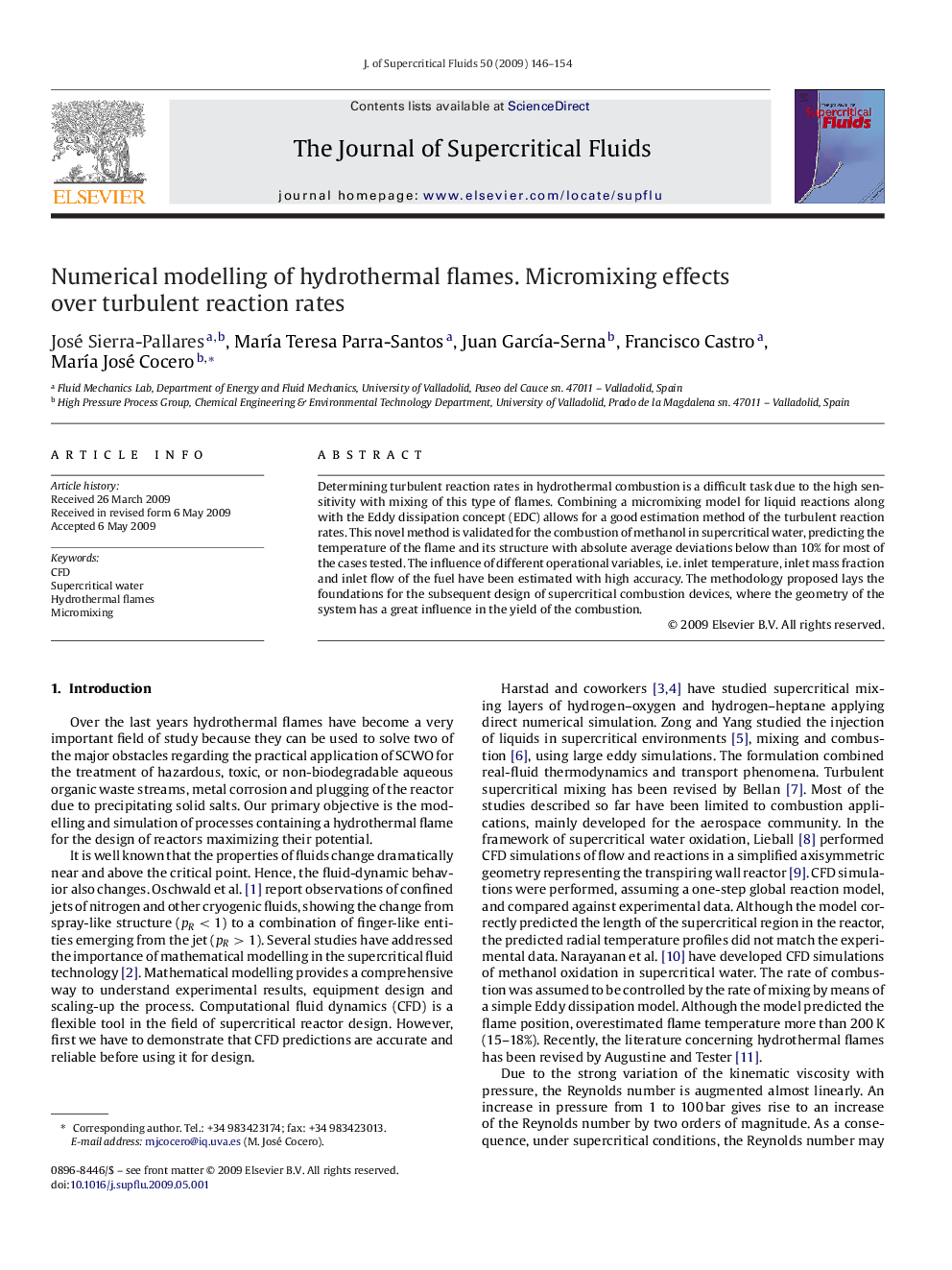| Article ID | Journal | Published Year | Pages | File Type |
|---|---|---|---|---|
| 231643 | The Journal of Supercritical Fluids | 2009 | 9 Pages |
Determining turbulent reaction rates in hydrothermal combustion is a difficult task due to the high sensitivity with mixing of this type of flames. Combining a micromixing model for liquid reactions along with the Eddy dissipation concept (EDC) allows for a good estimation method of the turbulent reaction rates. This novel method is validated for the combustion of methanol in supercritical water, predicting the temperature of the flame and its structure with absolute average deviations below than 10% for most of the cases tested. The influence of different operational variables, i.e. inlet temperature, inlet mass fraction and inlet flow of the fuel have been estimated with high accuracy. The methodology proposed lays the foundations for the subsequent design of supercritical combustion devices, where the geometry of the system has a great influence in the yield of the combustion.
Graphical abstractDetermining turbulent reaction rates in hydrothermal flames 1 is a difficult task due to the complexity of the phenomena in the injector. Combining a micromixing model for liquid reactions along with the Eddy dissipation concept (EDC) allows for a good estimation method of the turbulent reaction rates. This novel method is validated for the combustion of methanol in supercritical 5 water, predicting the temperature of the flame and its structure with absolute average deviations below than 10% for most of the cases tested. The influence of different operational variables, i.e. inlet temperature, inlet mass fraction and inlet flow of the fuel have been estimated with high accuracy. The methodology proposed lays the foundations for the subsequent design of supercritical combustion devices, where the geometry of the system has a great influence in the yield of the combustion.Figure optionsDownload full-size imageDownload as PowerPoint slide
